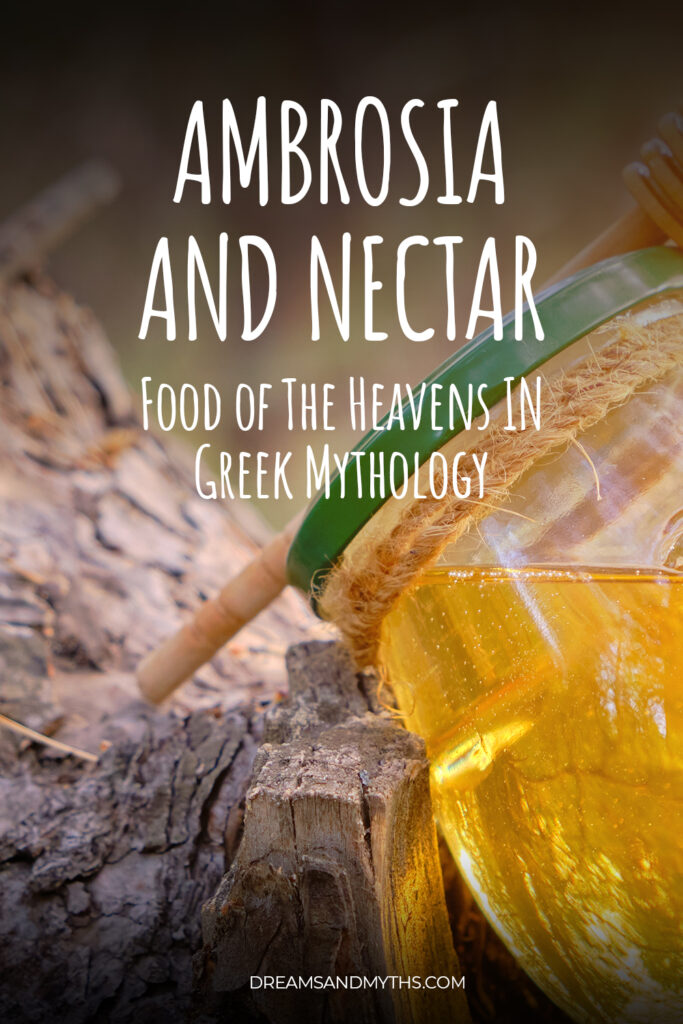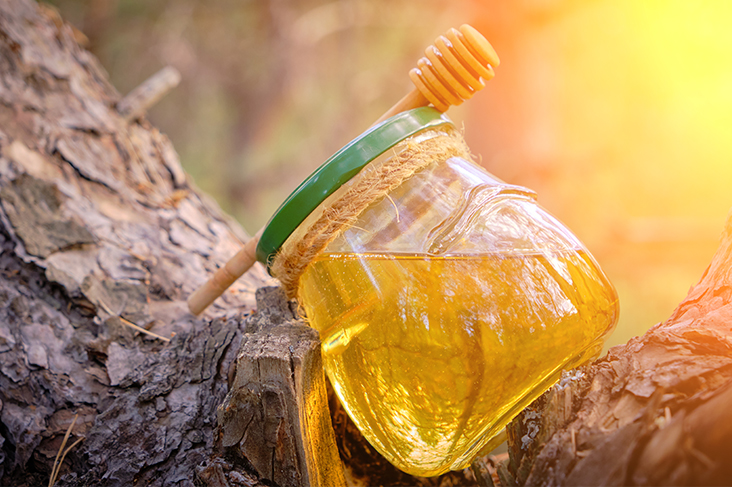One thing is common when we compare the stories of various mythologies and religions.
The deities are either immortal or have long lifespans. In ancient religious scriptures, there is a reference to a particular type of food that only the gods are permitted to eat, and this fact is rarely discussed.
In order to keep their immortality, strength, and power, the gods were obligated to consume this cuisine on a daily basis. So, the idea that mortals could attain godlike immortality by consuming this food is mentioned in many contexts.

One of the most prominent allusions to the eternal diet can be seen in Greek mythology. According to Greek mythology, Ambrosia and nectar were the staples of the gods’ diet. They first appeared in the tales surrounding Zeus’s birth.
It was once believed that the gods “sniffed” the vapors of their opponents’ corpses, drawing sustenance from the kinetic energy of the departed, before they “invented” or “discovered” ambrosia and nectar.
So let’s investigate the mythology pertaining to the gods’ food and drink.
Food And Drinks of The God
Obviously, those chiseled Greek Gods didn’t feast on Gyros. But they indulged in ambrosia, the consumption of which conferred eternal life.
Imagine the gods gathered atop Mount Olympus, enjoying each other’s company while birds bring them nectar and ambrosia.
Then, as a special treat, Hebe, the daughter of Zeus and Hera, and Ganymede, a mortal hero from the region of Troy, would serve an infinite supply of nectar and ambrosia at a celestial banquet.
But how do we know that the gods drank nectar fed on ambrosia? Fortunately, Homer had already documented this phenomenon in his poetry.
But, this is still up for discussion in light of poetry by the ancient Greek poet Alcman, who said that nectar was the meal and ambrosia was the drink in paradise. However, the gods still ended up eating them both.
According to the Odyssey, Menelaus and his troops were saved by the sweet perfume of ambrosia and honey.
Ambrosian nectar is a prominent topic of discussion in ancient literature. The common opinion is that the gods ingested some food or drink that granted them eternal life. So, consuming it would transform the blood of deities into the heavenly life force known as Ichor.
The problem with this beverage was that once you started drinking it, you had to keep drinking it, or your vitality would slowly but surely disappear. The Olympian goddess Demeter experienced a gradual loss of her abilities.
Ambrosia: The Elixir of Life
Ambrosia and nectar were thought to have granted the Greek gods and goddesses immortality. Still, it was also believed that the gods needed to consume them regularly to maintain their youth and vitality.
In her hunt for her abducted daughter Persephone, the goddess Demeter deprived herself of food and water, which led to her gradual deterioration.
The horn of Zeus’s foster mother, Amalthea, a mythical goat, was supposed to be the source of ambrosia. Aside from creating an infinite supply of ambrosia, the horns of Amalthea could also grow any food imaginable.
White holy doves would carry the ambrosia, and a huge eagle with glittering wings would soar through the sky at incredible speed to reach the nectar, which it would then deliver down to the infant Zeus.
While the rest of the demigod Achilles was made immortal by his mother’s pouring of ambrosia over him, the heel she clung onto never lost its mortality. This set the stage for Paris to slay Achilles afterward.
Legend has it that the gods used ambrosia to heal wounds, remove scars, and restore a body’s natural beauty. Also, Ambrosia would keep the corpses of the deceased in pristine condition indefinitely.
Ambrosia was plentiful in the Hesperides’ gardens, as shown by various sources. Ambrosia was delivered to Zeus by the nymphs known as the Hesperides, who cared for a paradise garden in the far western reaches of the world.
The Greek goddess Aphrodite, who personified love and beauty, inspired the word ambrosia. After being born at sea, Aphrodite made her way to land. In Greek mythology, ambrosia was the nectar of the gods. Legend has claimed that whoever drinks the ambrosia will never age.
It was associated with nectar, another substance enjoyed by deities. Ambrosia and nectar were often used synonymously with one another. Some people consider Ambrosia food, while others consider Nectar a drink.
It was believed that the deities’ blood, combined with Nectar and Ambrosia, became the divine life force, Ichor. So, those who feed on the nectar and ambrosia of the gods must maintain their diet of divine fare, or their lives will slowly fade away.
Even though Tantalus was the son of the supreme god, he was not spared. As the son of Zeus, Tantalus was frequently invited to share meals with the Olympians.
While there, he took advantage of their generosity by stealing their sacred ambrosia and nectar, both of which were held to have the power to provide eternal life.
Tantalus gave his friends the stolen items to impress them, letting them in on a secret kept for the gods.
Tantalus’ powerful father put an end to his life when he learned of his son’s treachery. He was sent to Hades, where he would endure eternal torment from hunger and thirst.
The Healing Power of Ambrosia And Nectar
The Greeks offered Ambrosia and nectar to the goddess Aphrodite after she was hurt by the Achaean hero Diomedes to help her recover and clean her wounds.
After releasing the giants from Tartarus, Zeus provided the Cyclopes and Hecatonchires with a rejuvenating meal and drank Ambrosia and Nectar.
Anointing Fluids
But ambrosia and nectar were more than just consumables; they might also be used to anoint people.
When Patroclus killed Zeus’s son Sarpedon during the Trojan War, Apollo used Ambrosia to purify the body. Likewise, Thetis would use Ambrosia to wash Patroclus’s body before he was burned on the funeral pyre, just as she did when he died.
While Achilles was an infant, the anointing fluid Ambrosia first came to public attention. Before the mortal remnants of Achilles were burned away, his mother, Thetis, attempted to make him immortal by covering him with ambrosia.
Unfortunately for Thetis, her husband Peleus spotted her and immediately assumed the worst about her intentions for their son.
For The Sweet Tooth
Honey has been proposed as a possible component of Ambrosia and Nectar. Honey has long been cherished for its delicious flavor and reputed health benefits.
It’s useful for fermentation and as a food additive. In ancient Greece, honey wine was a popular beverage. There’s a legend about an Ambrosia-named nymph.
What Is Better For An Embalming: Honey or Wine?
Whether ambrosia and nectar were made up or existed in the actual world is a topic of much debate and speculation. However, stopping the body from rotting can trick death out of its destructive effects and give the dead man a second chance at life.
There are accounts of ambrosia employed as an embalming fluid in ancient Greek literature. In the Iliad, Apollo anoints Sarpedon’s body with ambrosia.
But, in contrast to contemporary embalming liquids, nectar and ambrosia taste delicious. The goddess Aphrodite, according to Homer, scented herself with sweet ambrosian oil.
As part of their seal disguise in The Odyssey, Menelaus and his men cover themselves in filthy animal skins. But the goddess provides them with ambrosia so that they do not suffocate.
Some have hypothesized that nectar and ambrosia were two sorts of honey due to their purifying and therapeutic effects and a pleasant aroma.
According to another theory, nectar is honey wine. An ambrosia cake could be baked with honey, water, cheese, fruits, olive oil, and barley.
Where Ambrosia And Nectar Came From Other Theories?
Scientists also explored origin stories for the names of magical elixirs. For example, Ambrosia, from Greek, means “immortality,” and it shares its etymology with the Sanskrit term “amrita.” Amrita is also the name of a food or drink associated with immortality in Hindu mythology.
Similarly, Soma, a nectar-like drink from an unnamed plant, is mentioned in Hindu mythology. Those in Iran and India employed it in their religious ceremonies.
We drank Soma and then became immortal,” reads a passage from the Hindu holy text Rig Veda. This describes the effects of Soma.
Some candidates for the category of the somatic plant include the amanita muscaria, hemp, and the psychedelic Psilocybe cubensis mushroom, which thrives in cow manure.
It could be the Sarcostemma, known in Sanskrit as somalata, which grows in the Himalayas. Somatic juice, made from this plant, is employed in South Indian Ayurvedic and Siddha medical practices and rites of purification.
It’s worth noting that ephedra is yet another herb that can be used as a soma substitute. In Mandarin Chinese, this place is referred to as Ma Huang.
This plant has been used for 300 years in China to treat various illnesses using traditional Chinese medicine. A few examples are the common cold, influenza, headaches, malaria, and asthma.
Because of its possible similarities to the term “soma,” it is known as “homa” in Iran. In the nineteenth century, local Zoroastrians still imported and employed this plant in rituals.
No one knows for sure what either “nectar” (a sweet drink) or “ambrosia” (meal fit for the gods) looked like, despite their common use to describe delightful foods. Nevertheless, these items may be the most widely sold (honey, wine).
But most likely, the gods’ sustenance was crafted from mystical plants that were connected with wellness, longevity, and even immortality for their curative capabilities and miraculous effects on the body.
Perhaps they were hallucinogens that facilitated interaction between humans and the divine.
Nectar and ambrosia may have been crafted from species of plants that are now extinct or unknown to science; alternatively, they may be metaphors for any kind of enchanted fare.
Possibly, the names are all metaphors for the eternal essence of the gods and that the entities in question never existed in the natural world.
Wrapping Up
Ambrosia has been the subject of several myths, but the most pervasive is the idea that if you drank it, you’d get the might of the Gods and live forever.
This could be the fundamental reason why most people still today believe in honey’s curative properties. Yet, we will never know this for sure.
Historians have been unable to pin down the specific components of ambrosia and nectar. There are those who associate it with honey, while others think of jelly or even produce. This combination of components is native to Greece and has been linked to increased longevity.
Modern Greece is home to a number of foods and snacks named after Ambrosia. For example, taking Greek yogurt mixed with honey or fruit has improved immunity and increased lifespan.
